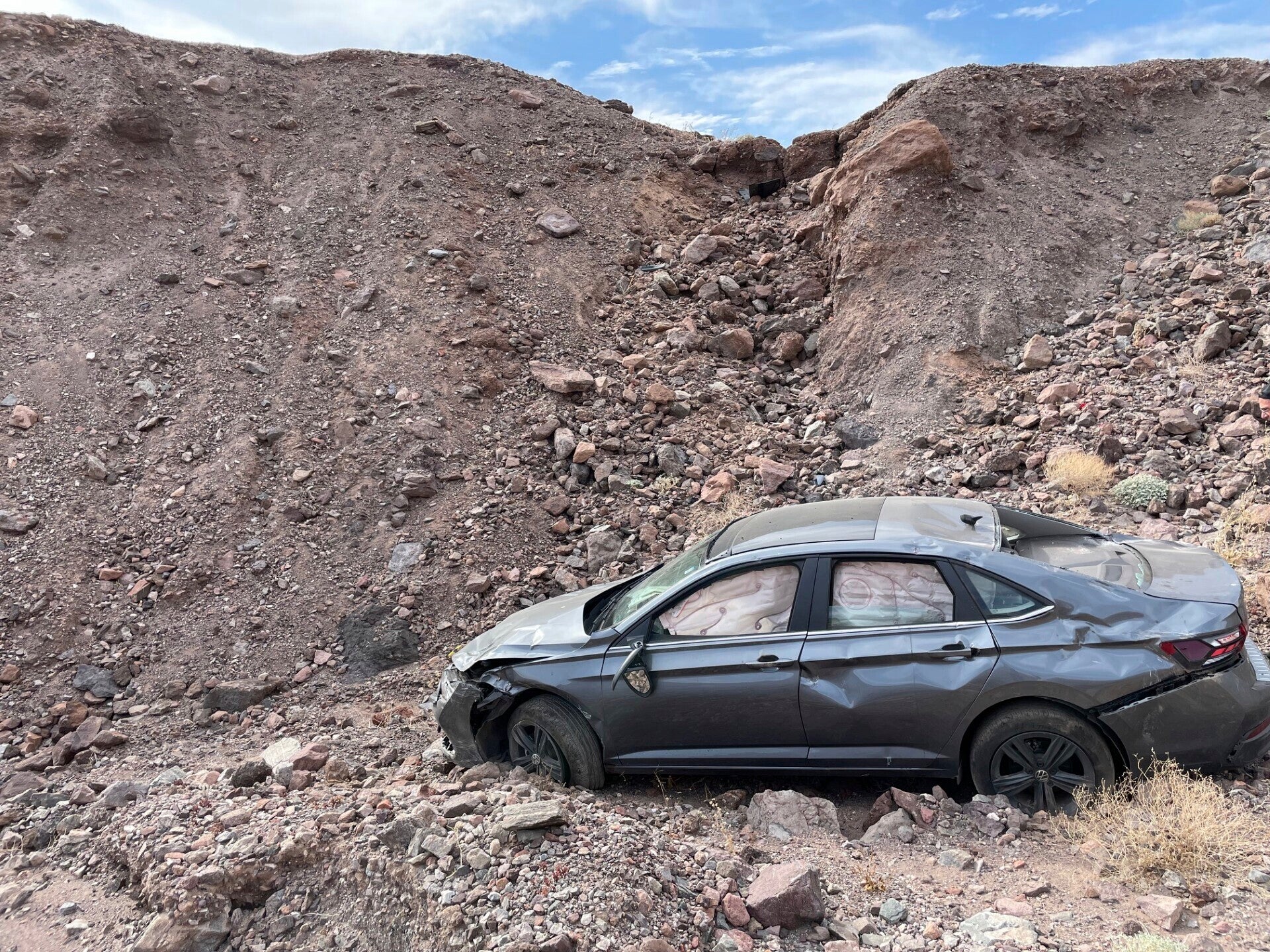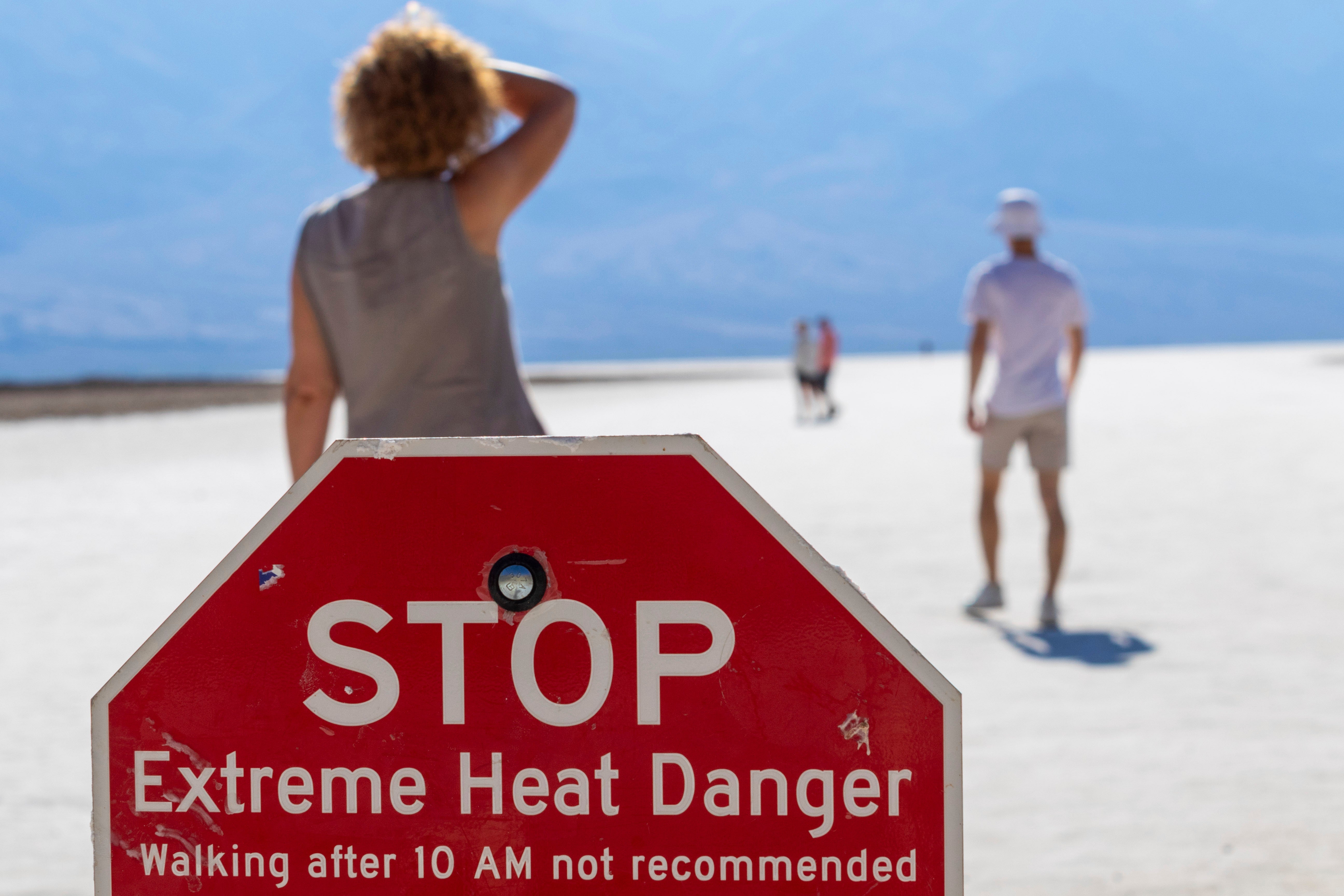Second person killed by heat in Death Valley
The man drove his car off an embankment while suffering from hyperthermia

Your support helps us to tell the story
From reproductive rights to climate change to Big Tech, The Independent is on the ground when the story is developing. Whether it's investigating the financials of Elon Musk's pro-Trump PAC or producing our latest documentary, 'The A Word', which shines a light on the American women fighting for reproductive rights, we know how important it is to parse out the facts from the messaging.
At such a critical moment in US history, we need reporters on the ground. Your donation allows us to keep sending journalists to speak to both sides of the story.
The Independent is trusted by Americans across the entire political spectrum. And unlike many other quality news outlets, we choose not to lock Americans out of our reporting and analysis with paywalls. We believe quality journalism should be available to everyone, paid for by those who can afford it.
Your support makes all the difference.Death Valley National Park in California has claimed another life in its second heat-related death of the summer, park officials said on Monday.
On August 1, a day where temperatures reached nearly 120 degrees Fahrenheit (48.3 degrees Celsius), bystanders saw a man stumble back from the Natural Bridge Trailhead, a one-mile roundtrip trail, according to a news release.
The man, identified as 57-year-old Peter Hayes Robino of Duarte, California, declined their help. Witnesses said his responses did not make sense. He returned to his car and drove off a 20-foot embankment at the edge of the parking lot, the news release said.
Bystanders helped Robino walk back to the parking lot and find shade while one of the called 911. National Park Service emergency responders received the call at 3:50 p.m. and arrived 20 minutes later, the news release said.
According to the bystanders, Robino was breathing until right before responders arrived. They conducted CPR and moved him into the air-conditioned ambulance.
Robino was declared dead at 4:42 p.m., and an autopsy found he died of hyperthermia, or overheating. Symptoms of hyperthermia include confusion, irritability and a lack of coordination.
In July, a motorcyclist died while traveling with a group through the desert on a day with a record high daily temperature of 128 degrees F (53.3 degrees C). Another member of the group was hospitalized, and four others were treated on site. Later that month, a European tourist got third-degree burns on his feet from briefly walking barefoot on the sand.

At the valley’s salt flats in Badwater Basin, the lowest point in North America, the park has a large red stop sign that warns visitors of the dangers of extreme heat to their bodies after 10 am. Additionally, emergency medical helicopters cannot generally fly safely over 120 F (48.8 C), officials say.
Park rangers warn summer travelers to not hike at all in the valley after 10 a.m. and to stay within a 10-minute walk of an air-conditioned vehicle. Rangers recommend drinking plenty of water, eating salty snacks and wearing a hat and sunscreen.